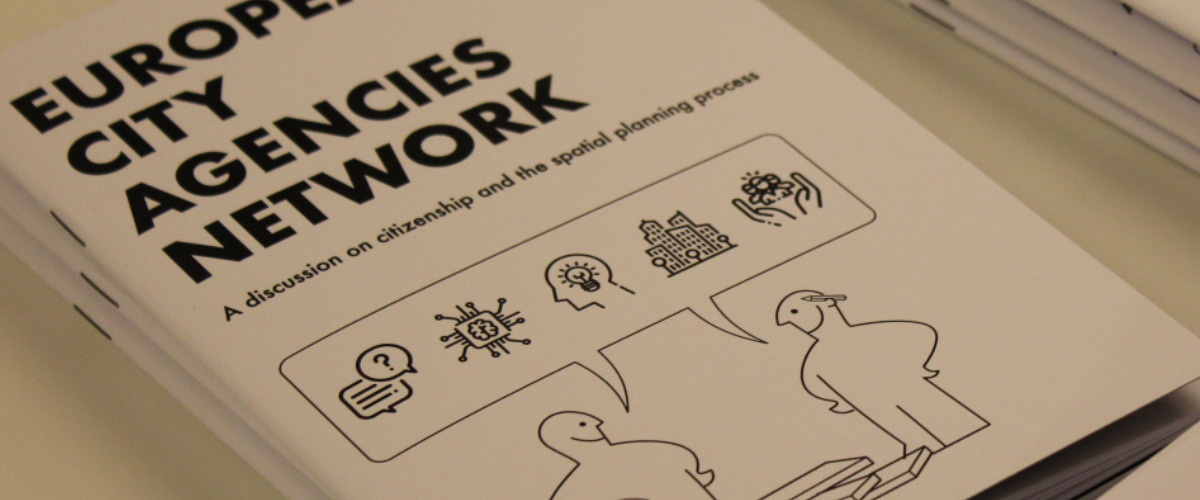
European City Agencies Network (EUCANET)
EUCANET is the European Agencies Network for citizenship, inclusion, involvement and empowerment of communities through the urban transformation process.
Primary Investigators: Erica Albarello (EU Project Manager, Urban Center Metropolitano); Chiara Lucchini (Regional Development Manager, Urban Center Metropolitano); Corrado Topi (Senior Research Fellow, SEI - University of York)
External Collaborators: Urban Center Metropolitano
Funder: Europe for Citizens Programme of the European Union
External Website: https://eucanet.wordpress.com/
A more integrated assessment of city-related issues is crucial to address some of the biggest contemporary societal challenges: urban systems, besides representing the engines of economy, boosting growth, creating jobs, favoring innovation and interaction, enhancing the competitiveness of EU at global level, are the places in which inequalities, social unbalances and conflicts express themselves (targeting poverty, segregation, unemployment and immigration, is becoming everyday more an urban policies matter).
Along time the EU has reflected on the role of cities in the future sustainable development of the Member States and their citizens[1]: urban systems, as complex and responsive contexts, are privileged hot spots to activate policies, programs and projects addressed to concretely strengthen the EU identity, building the future of EU, fighting populisms and enhancing democratic participation of existing and newly constituted communities.
Due to the great incidence of urban areas (they collect more than 3/4 of the Union’s population – 80% by 2050-, and the 73% of all EU jobs), EUCANET gives local relevance to EU values focusing on the urban policy-making process, exploiting cityscape as a common feature of EU cities, part of their identity and character. EUCANET explores the role spatial policies can have to enhance a more direct (operational and proactive) involvement of communities, using the public discourse on space (i.e. the use, government, transformation, management of lands and buildings in the city) as a “translational” device, a “trading zone” between different instances, issues, interests, languages, concepts and concerns.
Systematizing, facilitating and strengthening a network of UA and organizations (CA, Research Institutions, Network of Cities, City-makers, Policy-makers, civic organizations and NGOs), EUCANET explores how EU urban areas nurture and can better support dialogue, active citizenship, social inclusion, involvement and empowerment of communities through the urban transformation process.
Pivotal in the project are CA: these site-specific organizations work at different territorial levels (community, city, metropolitan, regional), engaging local communities and stakeholders. CA perform a variety of activities (information, planning support, participatory practices, city branding, economic development, advocacy, etc.), enjoying a privileged position between top-down policies and bottom-up initiatives, but still missing a close relationship with the EU level. Often contributing to directly shape the spatial planning (dialoguing with citizens, organizations, business and knowledge institutions, public authorities), CA help generate new governance models, shared knowledge, social and relational resources.
As they favor a larger democratic participation, CA can be used to provide high quality information on EU policies, promote EU citizenship values by fuelling the debate on the EU urban agenda, collect and combine issues and requests, mobilize EU citizens. EUCANET aims to explore how CA can be tools to raise the standard of citizens’ inclusion, civic involvement, local communities empowerment, co-creation of urban commons, sharing theoretical, practical and operational knowledge, to offer the Pact of Amsterdam a Thematic Partnership proposal for a more effective and democratic implementation of the EU Urban Agenda.
[1] see Leipzig Charter/2007, Toledo Meeting/2010, Territorial Agenda of the EU/2011, Pact of Amsterdam/2016
Contact us
Interdisciplinary Global Development Centre
igdc@york.ac.uk
01904 323716
Department of Politics and International Relations, University of York, Heslington, York, YO10 5DD, UK
Twitter
Contact us
Interdisciplinary Global Development Centre
igdc@york.ac.uk
01904 323716
Department of Politics and International Relations, University of York, Heslington, York, YO10 5DD, UK
Twitter